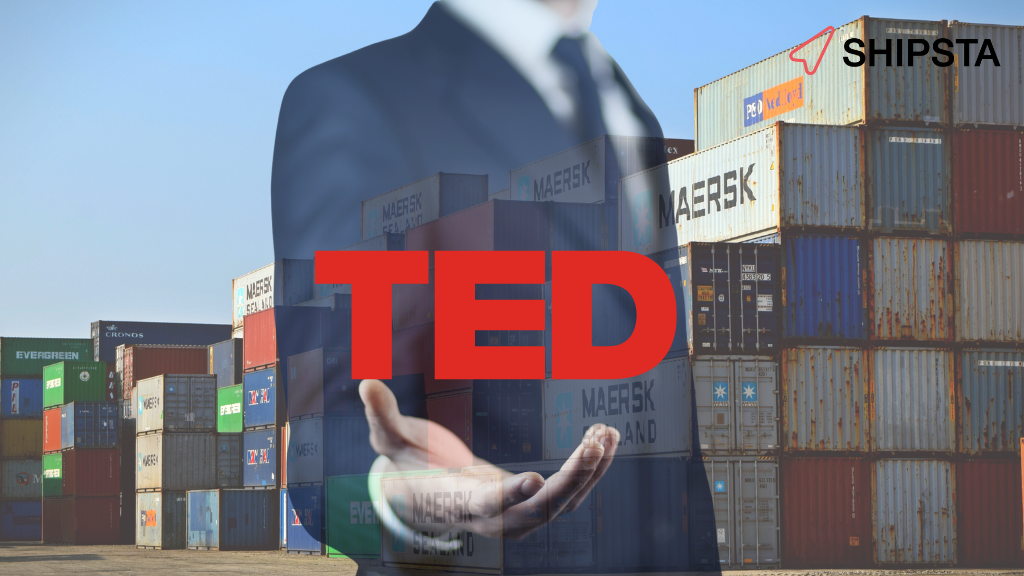We all love to speculate what the future will be like – it’s human nature.
And although we’re not likely to be flying hover cars or have robot butlers any time soon, the rapid pace of tech development makes you feel like the next huge leap forward is just around the corner. And this feeling is especially true for the world of freight procurement and shipping.
The shipping and freight procurement industry has historically been resistant to change. But in recent years, new tech has been pushing the industry forward at a rapid rate. This future-forward movement is leading experts and industry insiders to predict big changes by the end of this decade.
So, what will freight procurement and shipping look like by 2030?
1. Shipping lines will have carbon neutral fleets
With consumers and investors putting pressure on companies to reduce carbon emissions – companies are in turn pressuring shipping lines to offer greener solutions.
This has pushed the world’s major shipping companies to heavily invest in carbon neutral ships and fuel. At the forefront of the movement is industry giant Maersk, who announced their carbon neutral vessel would be on the seas by 2024! The vessel will run on e-methanol, a carbon-neutral fuel. Moving forward, the company plans to only order new vessels that run on carbon-neutral fuel, with the goal of having a fully carbon neural fleet by 2025.
We’re likely to see wind-powered cargo ships by 2030 too! Several companies are developing green ships with huge sails that are powered wind energy. NEOLINE, a wind-powered-specialised shipping line, is expecting to have its first vessels on the sea in 2024 – and they plan for a range of maritime vessels in operation by 2030.
This increase sustainable market offerings is great news for shippers! It will make reducing your shipping carbon footprint easier and cheaper as you’ll have more green opportunities to take advantage of.
2. Driverless trucks will be on the road
The news about driverless cars seems to be everywhere these days – but have you heard about driverless trucks? Surprisingly, the development of self-driving trucks is actually speeding past self-driving cars.
Trials of autonomous trucks have already taken place. Self-driving truck company TuSimple plan to have their autonomous trucks on the road as early as 2024!
The market is predicted to boom over the rest of the decade: the semi- and fully-autonomous truck market is expected to reach a massive $88bn (£64bn; €74bn) by 2027!
This will make procuring road freight cheaper and remove problems caused by lack of drivers in the industry.
3. Freight procurement will be powered by hyperautomation
Today’s freight procurement platforms are advancing technologically at lightning speed. Now, supply chain professionals are predicting that by 2025 procurement automation will extend beyond routine tasks and processes.
The most advanced freight procure platforms are even beginning to offer autonomous freight procurement software, which can independently procure freight with minimal input from a real person!
Market research firm Gartner expect that supply chain tech is on the path to becoming fully autonomous. In their study, Supply Chain 2035 Road Map, they predict that by 2030 supply chain tech will have reached ‘hyperautomation’. For example, freight procurement tech would be able to undertake complex tasks and decisions that have typically required human judgement.
This switch to intelligent tech will remove much of the slow administrative burden that makes freight procurement so time-consuming and tedious – leaving you time to focus on strategic and value-add activities.
Want to see how advanced freight procurement platforms are today. Book a demo with our logistics experts to see how you can procure freight in the most advanced way.
About SHIPSTA
SHIPSTA powers smart logistics procurement with a digital platform that connects shippers and carriers to ensure a frictionless procurement process for spot and contract buying, entirely online. It automates complex tasks, provides unrivalled visibility and supports fast data-driven decision making.
Designed and built by experts in logistics procurement, SHIPSTA is bringing transparency, automation and efficiency to the global logistics industry. It is used by some of the world’s largest companies to respond to market volatility, control freight costs and manage risk. The company was founded in 2015 and is based in Mertert, Luxembourg and Hamburg, Germany.



